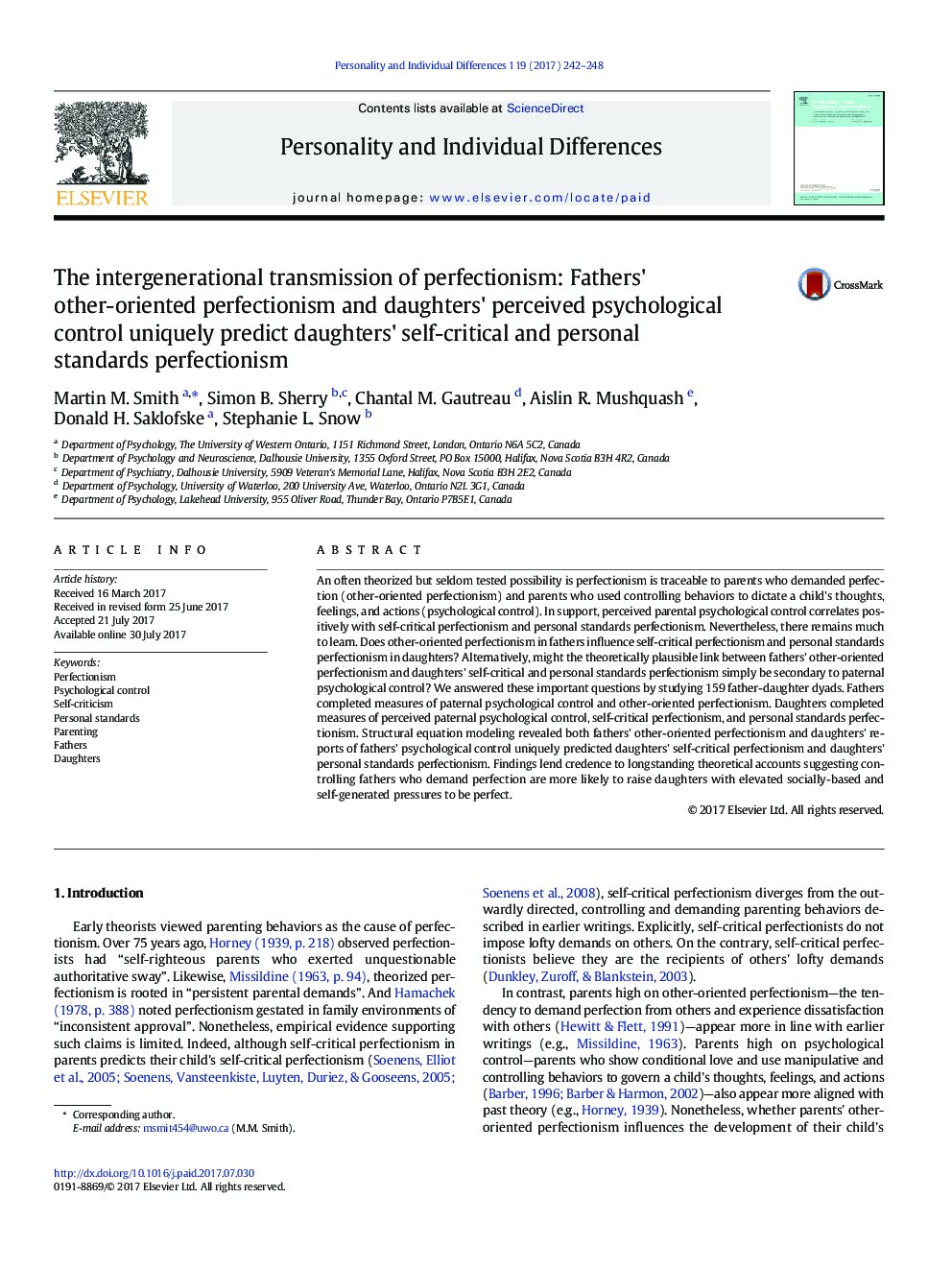| Article ID | Journal | Published Year | Pages | File Type |
|---|---|---|---|---|
| 5035679 | Personality and Individual Differences | 2017 | 7 Pages |
â¢Studied perfectionism and paternal psychological control in 159 father-daughter dyadsâ¢Fathers' demands of perfection predicted daughters' self-critical perfectionism (SCP).â¢Fathers' demands of perfection predicted daughters' personal standards perfectionism (PSP).â¢Daughters' reports of fathers' psychological control predicted daughters' SCP and PSP.â¢Controlling and demanding fathers' have daughters high in SCP and PSP.
An often theorized but seldom tested possibility is perfectionism is traceable to parents who demanded perfection (other-oriented perfectionism) and parents who used controlling behaviors to dictate a child's thoughts, feelings, and actions (psychological control). In support, perceived parental psychological control correlates positively with self-critical perfectionism and personal standards perfectionism. Nevertheless, there remains much to learn. Does other-oriented perfectionism in fathers influence self-critical perfectionism and personal standards perfectionism in daughters? Alternatively, might the theoretically plausible link between fathers' other-oriented perfectionism and daughters' self-critical and personal standards perfectionism simply be secondary to paternal psychological control? We answered these important questions by studying 159 father-daughter dyads. Fathers completed measures of paternal psychological control and other-oriented perfectionism. Daughters completed measures of perceived paternal psychological control, self-critical perfectionism, and personal standards perfectionism. Structural equation modeling revealed both fathers' other-oriented perfectionism and daughters' reports of fathers' psychological control uniquely predicted daughters' self-critical perfectionism and daughters' personal standards perfectionism. Findings lend credence to longstanding theoretical accounts suggesting controlling fathers who demand perfection are more likely to raise daughters with elevated socially-based and self-generated pressures to be perfect.
